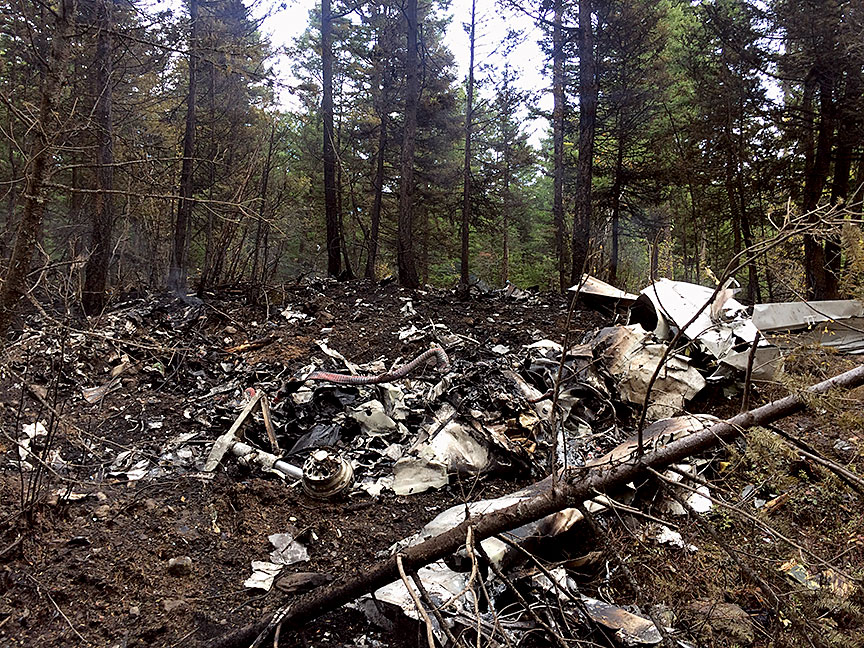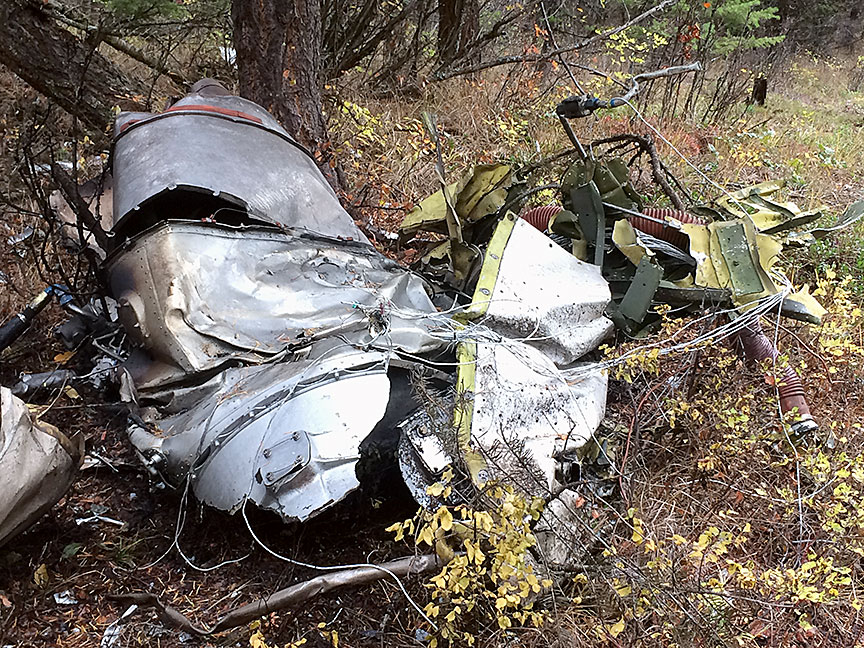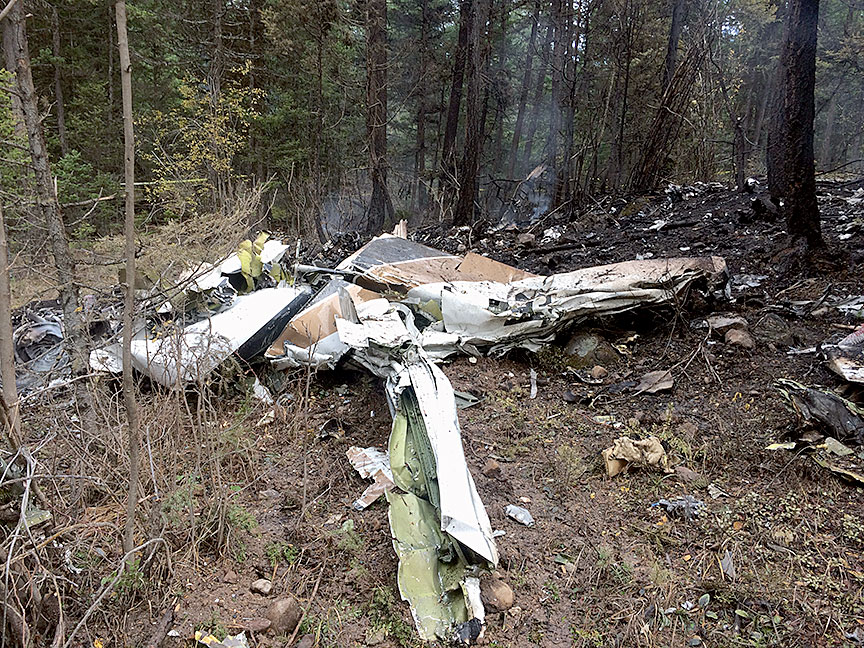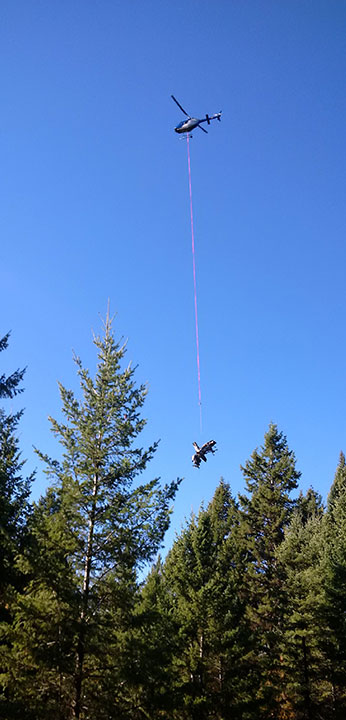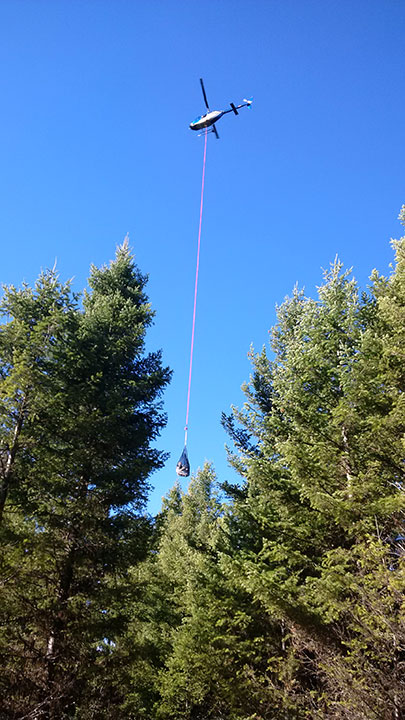Loss of control and collision with terrain
Norjet Inc.
Cessna Citation 500, C-GTNG
Kelowna Airport, British Columbia, 4.5 nm NE
The occurrence
On 13 October 2016, a privately operated Cessna Citation 500 (registration C-GTNG, serial number 500-0169), departed Kelowna Airport (CYLW), British Columbia, on an instrument flight rules night flight to Calgary/Springbank Airport (CYBW), Alberta. The pilot and 3 passengers were on board. Shortly after departure, at about 2135 Pacific Daylight Time, the aircraft made a tight right turn as it was climbing through 8600 feet above sea level, and then entered a steep descending turn to the right until it struck the ground. All of the occupants were fatally injured. Impact forces and a post-impact fire destroyed the aircraft. No emergency call was made, and no emergency locator transmitter signal was detected.
Safety communications
Recommendations
TSB Recommendation A18-01: The Department of Transport require the mandatory installation of lightweight flight recording systems by commercial operators and private operators not currently required to carry these systems.
Safety concern
Media materials
News release
TSB recommends mandatory installation of flight recorders for commercial and private business aircraft
Read the new release
TSB reiterates call for expanded requirements for the use of Cockpit Voice Recorders and Flight Data Recorders, following the Kelowna accident
Read the new release
TSB launches investigation into the accident involving a Cessna Citation north of Kelowna, British Columbia
Read the new release
Backgrounders
Speeches
News conference for the release of Aviation Investigation Report A16P0186 (Kelowna)
Opening remarks
Kathy Fox, TSB Chair
and
Beverley Harvey, Investigator-in-charge
Deployment notice
TSB deploys a team of investigators to an air accident north of Kelowna, British Columbia
Download high-resolution photos from the TSB Flickr page.
Class of investigation
This is a class 2 investigation. These investigations are complex and involve several safety issues requiring in-depth analysis. Class 2 investigations, which frequently result in recommendations, are generally completed within 600 days. For more information, see the Policy on Occurrence Classification.
TSB investigation process
There are 3 phases to a TSB investigation
- Field phase: a team of investigators examines the occurrence site and wreckage, interviews witnesses and collects pertinent information.
- Examination and analysis phase: the TSB reviews pertinent records, tests components of the wreckage in the lab, determines the sequence of events and identifies safety deficiencies. When safety deficiencies are suspected or confirmed, the TSB advises the appropriate authority without waiting until publication of the final report.
- Report phase: a confidential draft report is approved by the Board and sent to persons and corporations who are directly concerned by the report. They then have the opportunity to dispute or correct information they believe to be incorrect. The Board considers all representations before approving the final report, which is subsequently released to the public.
For more information, see our Investigation process page.
The TSB is an independent agency that investigates air, marine, pipeline, and rail transportation occurrences. Its sole aim is the advancement of transportation safety. It is not the function of the Board to assign fault or determine civil or criminal liability.
